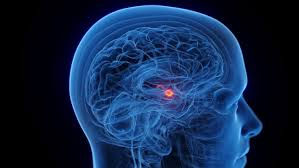Brain Series: The Role of the Insula in Eating Disorders
- support528742
- Jun 15, 2024
- 2 min read
Updated: Jun 19, 2024
The Insula and Interoception
The Insula is primarily responsible for interception, which is the experience of physical sensations inside one's body. This includes internal physical states such as taste, hunger, fullness, pain, and touch. The Insula evaluates these interoceptive cues and integrates them with motivational and emotional processes, indicating whether a person should approach or avoid a given situation. Essentially, it serves as a central hub for relaying information.
Interoceptive Prediction Errors in Individuals with AN
Individuals with anorexia nervosa (AN) tend to experience interoceptive prediction errors. The brain's and body's physiological awareness is ultimately decreased, impairing the ability to sense physical sensations accurately. This means there is a disconnect between what is expected and what is experienced. Such errors are detrimental because the ability to learn and adapt to one's environment relies on accurately predicting outcomes using environmental cues.
For someone with AN, this can feel like walking into situations blind, unable to trust their senses. This impacts body image as they struggle to trust their perception. This altered interoception causes anticipatory anxiety, increasing avoidance and intolerance of uncertainty. When encountering food this altered interception can trigger safety behaviors such as disgust and lead to avoidance.
In this process, individuals with AN can often lose sight of the big picture and become distracted by details. Additionally, it makes it extremely difficult to learn from experience, which is inherent to human development and thus can hinder their progress/growth, especially concerning recovery.
Study Example
One study showed that an increased (altered) Insula response to touch anticipation was associated with greater harm avoidance and body dissatisfaction. This indicates that individuals with high harm avoidance or body dissatisfaction have more acute altered anticipatory brain responses.
Impact on Eating Disorders and Treatment
Ultimately, eating disorders involve extreme disturbances to the systems that are supposed to give us necessary cues and a sense of prediction. Because internal signals cannot be trusted in AN, there is a reliance on external signals for recovery. Treatment through Temperament-Based Therapy with Supports (TBT-S) seeks to combat the lack of internal control within clients by providing an external structure that they can learn to trust and rely on. This treatment also involves their support systems to help provide such structure.
Check back soon to see our next posts diving into different areas of the brain involved in eating!



Comments